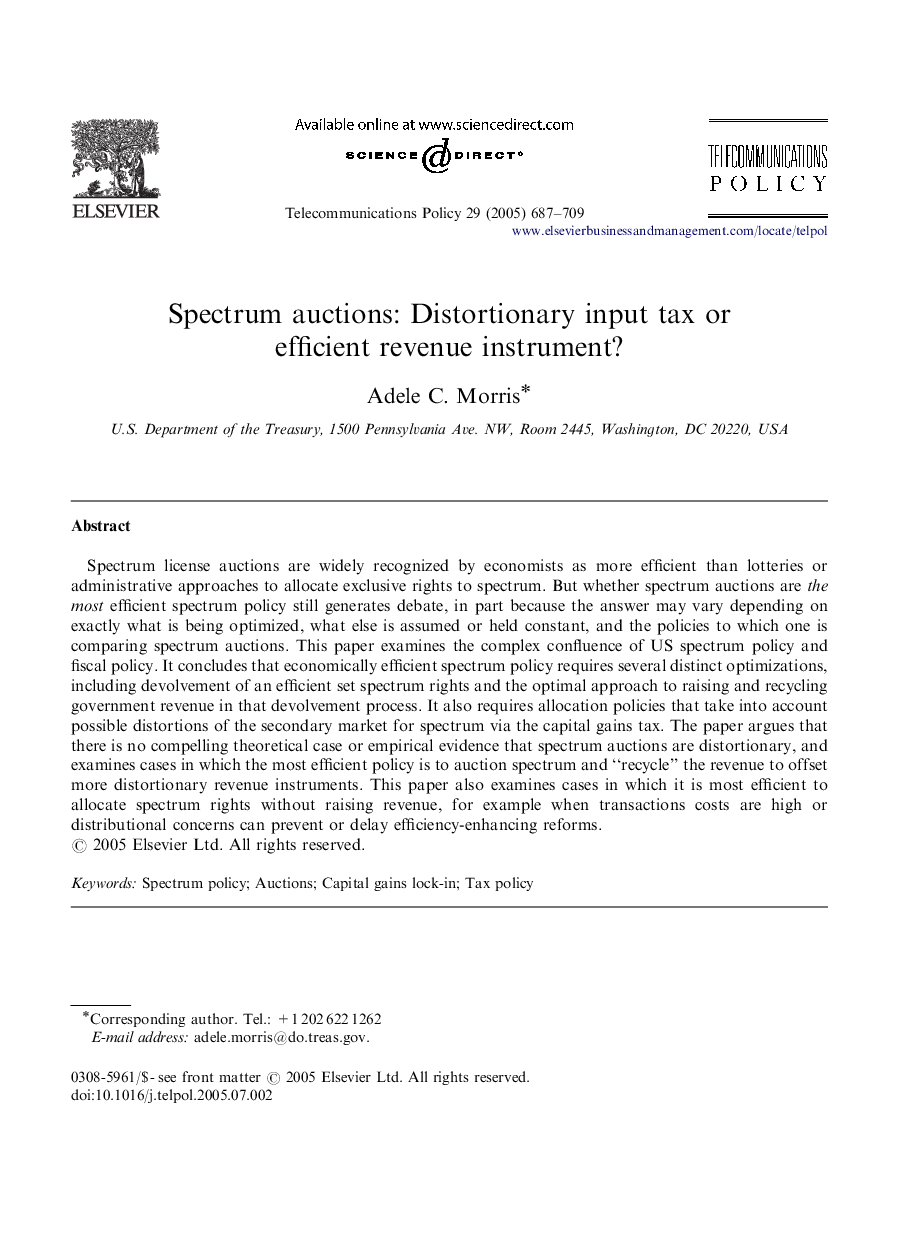| Article ID | Journal | Published Year | Pages | File Type |
|---|---|---|---|---|
| 9673201 | Telecommunications Policy | 2005 | 23 Pages |
Abstract
Spectrum license auctions are widely recognized by economists as more efficient than lotteries or administrative approaches to allocate exclusive rights to spectrum. But whether spectrum auctions are the most efficient spectrum policy still generates debate, in part because the answer may vary depending on exactly what is being optimized, what else is assumed or held constant, and the policies to which one is comparing spectrum auctions. This paper examines the complex confluence of US spectrum policy and fiscal policy. It concludes that economically efficient spectrum policy requires several distinct optimizations, including devolvement of an efficient set spectrum rights and the optimal approach to raising and recycling government revenue in that devolvement process. It also requires allocation policies that take into account possible distortions of the secondary market for spectrum via the capital gains tax. The paper argues that there is no compelling theoretical case or empirical evidence that spectrum auctions are distortionary, and examines cases in which the most efficient policy is to auction spectrum and “recycle” the revenue to offset more distortionary revenue instruments. This paper also examines cases in which it is most efficient to allocate spectrum rights without raising revenue, for example when transactions costs are high or distributional concerns can prevent or delay efficiency-enhancing reforms.
Keywords
Related Topics
Physical Sciences and Engineering
Computer Science
Information Systems
Authors
Adele C. Morris,
